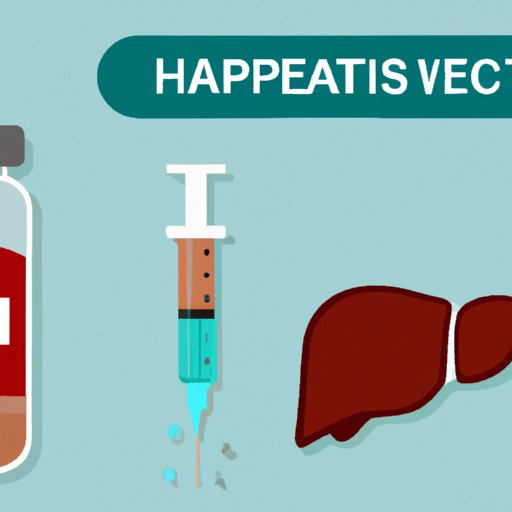
Introduction
Hepatitis B is a highly infectious disease that affects the liver. It is caused by the Hepatitis B virus (HBV) and is one of the most prevalent viral infections in the world today. This article is designed to provide an in-depth overview of the disease, its symptoms, transmission methods, and recent developments in vaccination and treatment options.
Hepatitis B: An Overview
Hepatitis B is an infectious disease that spreads through the exchange of bodily fluids, particularly blood. The disease can have serious long-term effects on the liver, leading to cirrhosis, liver failure, and in some cases, liver cancer.
Some of the common symptoms of Hepatitis B include fatigue, abdominal pain, joint pain, nausea, vomiting, and jaundice.
There are two forms of Hepatitis B: acute and chronic. Acute Hepatitis B typically lasts for a few months, with symptoms appearing within the first six months of exposure. Chronic Hepatitis B, on the other hand, can last for years or even a lifetime, with symptoms often remaining silent and without physical symptoms.
Why Hepatitis B is so Infectious
The Hepatitis B virus is highly infectious due to its unique structure and the ways it spreads from one person to another. The virus is made up of a protein shell and a DNA core, which can survive outside the body and remain contagious for up to seven days.
The most common transmission methods of Hepatitis B include mother-to-child transmission during childbirth, unprotected sex with an infected partner, sharing needles with an infected person, and exposure to contaminated blood products.
People who are at the highest risk of contracting Hepatitis B include healthcare workers, people who inject drugs, people with multiple sexual partners, and people living in areas with high rates of the disease.
Preventing and Treating Hepatitis B
One of the most effective ways to prevent Hepatitis B is through vaccination, which can be received at any age and is recommended for everyone, particularly newborns, children, and adolescents.
In cases where a person has already contracted Hepatitis B, antiviral medications can be prescribed to help manage the disease and mitigate its effects on the liver. For people with chronic Hepatitis B, liver transplantation may be a viable treatment option.
Living with Hepatitis B
People who are diagnosed with Hepatitis B may find it challenging to cope with the disease and the potential impact it can have on their lives. Lifestyle changes, such as avoiding alcohol and drugs, adopting a healthy diet, and practicing safe sex, can help protect the liver and prevent further damage.
It is also essential to take measures to prevent transmission of the virus to others, such as avoiding the sharing of needles and ensuring that sex partners are vaccinated against Hepatitis B.
Conclusion
In conclusion, Hepatitis B is a highly infectious disease that can have serious long-term effects on the liver. However, with the right preventative measures, treatment options, and lifestyle changes, those diagnosed with the disease can still lead fulfilling lives. Get vaccinated and seek medical advice if you think you may have been exposed to the virus.




